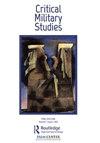从前线到趣味跑:通过关塔那摩湾的官方对话振兴例外
Q1 Arts and Humanities
引用次数: 0
摘要
摘要2002年,当美国关塔那摩湾海军基地(GTMO)的拘留计划启动时,布什政府将其描述为反恐战争中的一条重要战线。几年后,该方案被广泛视为一种负债。随着关于GTMO的政治话语变得越来越挑剔,拘留方案的官方话语是如何演变的?关于例外状态的持久性,这篇文章告诉了我们什么?GTMO的奖学金强调了该基地的特殊地位,但往往忽视了该基地所属的更广泛的军事系统,以及GTMO随着时间的推移所发生的变化。为了考察拘留计划官方话语的变化,本文对该计划的官方报纸《火线》438期进行了视觉和话语分析。该分析发现了各种变化,最引人注目的是该报在2006年底从军事公告改为生活方式杂志。《连线》从将GTMO安置在反恐战争的前线,转变为将基地定性为娱乐场所。《连线》还从强调反恐战争中的特殊事件转变为将拘留计划置于无休止冲突的更长历史中。这些变化振兴了无限期拘留和永久战争的例外。这项研究表明,特殊暴力系统不仅通过平庸、正常化的过程,而且通过休闲、治疗和个人成就的话语得以延续。本文章由计算机程序翻译,如有差异,请以英文原文为准。
From front lines to fun runs: revitalizing the exception through official discourse at Guantánamo Bay
ABSTRACT When the detention programme at the U.S. naval base at Guantánamo Bay (GTMO) started in 2002, the Bush administration described it as an essential front in the War on Terror. A few years later, the programme was widely seen as a liability. As political discourse about GTMO grew more critical, how did the detention programme’s official discourse evolve? What does this discourse tell us about the endurance of states of exception? Scholarship on GTMO emphasizes the exceptional status of the site, but often overlooks the broader military system of which the base is one part, as well as the ways GTMO has changed over time. To examine changes in the official discourse of the detention programme, this article undertakes visual and discourse analysis of 438 issues of The Wire, the official newspaper of the programme. The analysis identifies various changes, most notably that the newspaper switched format in late 2006, from military bulletin to lifestyle magazine. The Wire shifted from situating GTMO on the front lines of the War on Terror, to characterizing the base as a site of recreation. The Wire also changed from emphasizing the exceptional events of the War on Terror, to situating the detention programme within a longer history of unending conflict. These changes revitalized the exception of indefinite detention and perpetual warfare. This study shows that systems of exceptional violence are perpetuated not just through banal, normalizing processes, but also through discourses of leisure, therapy, and personal achievement.
求助全文
通过发布文献求助,成功后即可免费获取论文全文。
去求助
来源期刊

Critical Military Studies
Arts and Humanities-History
CiteScore
1.90
自引率
0.00%
发文量
20
期刊介绍:
Critical Military Studies provides a rigorous, innovative platform for interdisciplinary debate on the operation of military power. It encourages the interrogation and destabilization of often taken-for-granted categories related to the military, militarism and militarization. It especially welcomes original thinking on contradictions and tensions central to the ways in which military institutions and military power work, how such tensions are reproduced within different societies and geopolitical arenas, and within and beyond academic discourse. Contributions on experiences of militarization among groups and individuals, and in hitherto underexplored, perhaps even seemingly ‘non-military’ settings are also encouraged. All submitted manuscripts are subject to initial appraisal by the Editor, and, if found suitable for further consideration, to double-blind peer review by independent, anonymous expert referees. The Journal also includes a non-peer reviewed section, Encounters, showcasing multidisciplinary forms of critique such as film and photography, and engaging with policy debates and activism.
 求助内容:
求助内容: 应助结果提醒方式:
应助结果提醒方式:


